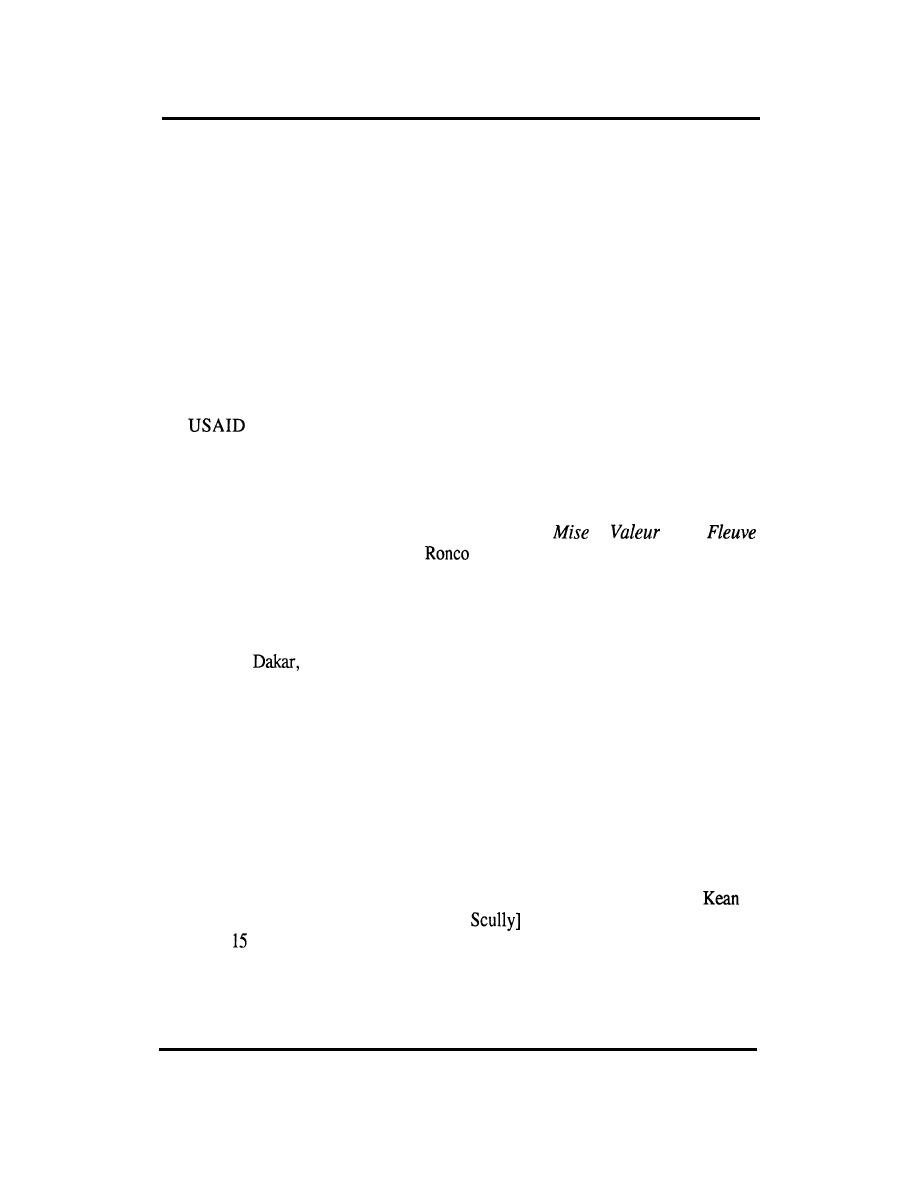
Water Resources People and Issues
project was to advise an institution called, in English, the Gambia River Basin
Development Commission.
It was an international organization comprising the countries of Senegal, The
Gambia, Guinea, and Guinea Bissau. The four countries had organized the
commission by an international treaty. It didn't have much money, but they had
hopes of building some big dams, on the Gambia River which was their idea
of how to solve their water problems. The Gambia River is one of these
streams that's a roaring torrent in the wet season and a dried-up river bed in the
dry season. The idea was that you'd build some dams and store the water in the
wet season so that you'd be able to irrigate all through the year.
had commissioned an immense study which had been done by the
Center for Research on Economic Development at the University of Michigan.
There was a series of five reports which stressed the environmental problems
of these dams which were severe. They also had a lot of mapping done and
were trying to wrap the whole thing up into a report which would help the
OMVG (the French name of Organization de
et
de la
Gambia) achieve its objectives.
wanted me to go to Dakar as an expert
on river basin planning, to try to reorient the plan into a more environmentally
sound solution to the problems. I don't remember who had given them my
name. It may have been Henry Caulfield. It sounded as if it would be an
interesting assignment, and I thought I could do some good. It would require
going to
traveling in the Gambia River basin, and then writing a report
on how they should wind up this project to led to a more realistic development
plan.
By that time we had almost run out of money at the Conservation Foundation
for the groundwater study. It was funded by the Ford Foundation and the Joyce
Foundation and several others. I never liked the business of going to
foundations for money. To me it seemed like a conflict of interest to ask for
money, part of which was going to be used to pay my own salary. The report
was completed to the stage of refereeing the haggling over words between
David Roderick, the chairman of U.S. Steel, Jay Hair, of the National Wildlife
Federation, and the governors, Governor Babbitt, Governor [Thomas]
of
New Jersey, and Governor [Anthony
Earl of Wisconsin. There were
about members and they worked well together, but they were arguing over
the final words of the recommendations. So it looked like there were greener
pastures for me in Africa.
212



 Previous Page
Previous Page
